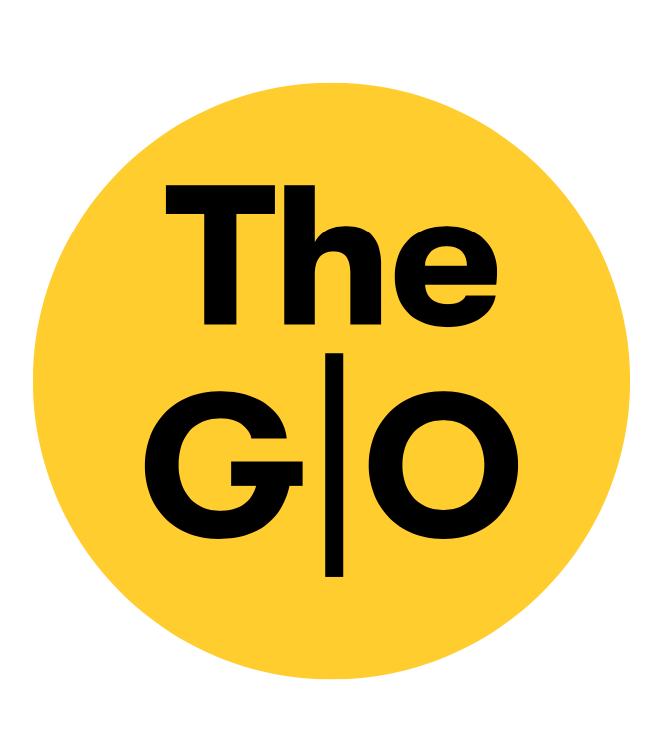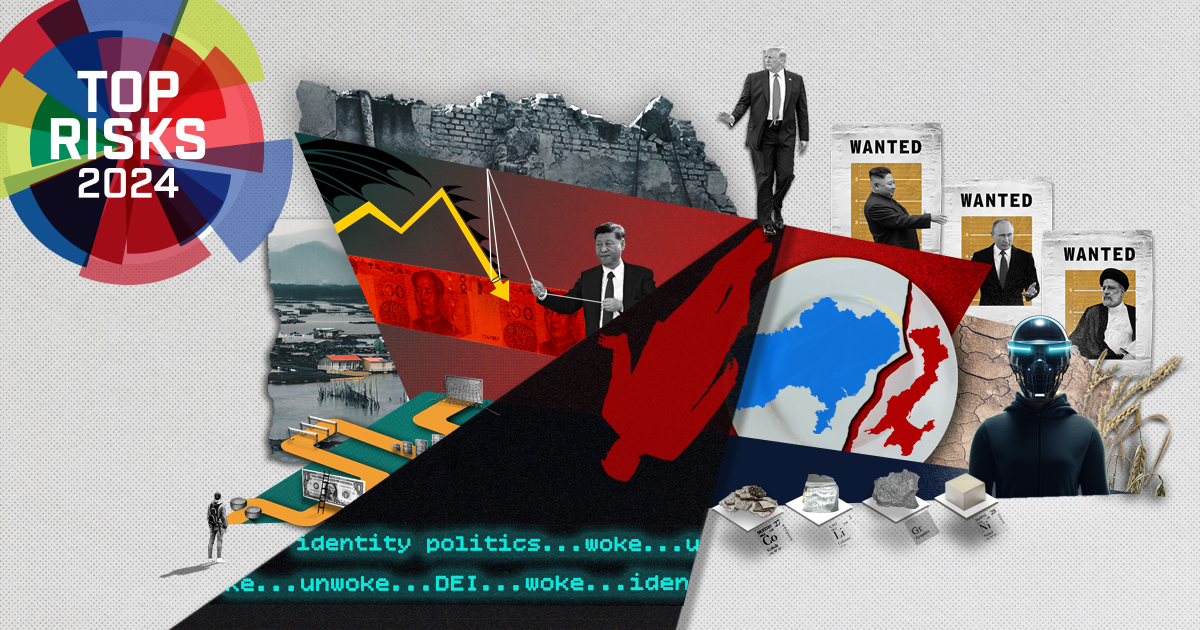#165 THE G|O BRIEFING, JANUARY 18, 2024
G|O Exclusive: China Seeks to Quash Dissent Ahead of Human Rights Review | Liquidity Crisis Should Not Obscure UN's Value | What If The West Abandons Ukraine? and Other Risks for 2024
Exclusive: China Seeks to Quash Dissent Ahead UN Review of Its Human Rights Record
China has made clear that it will brook no dissent next week when the UN Human Rights Council probes its record for the first time in five years, The Geneva Observer has learned, despite heightened concerns at its continuing repression of Muslim Uyghurs in Xinjiang and the crackdown on pro-democracy activists in Hong Kong.
Beijing’s diplomatic mission has asked the United Nations in Geneva (UNOG) to ensure that “anti-China separatists” are not granted access to Tuesday’s session—attendance at which requires accreditation—and that no “anti-China” slogans or banners are tolerated on the premises. “Harassment activities inside Room XX are advised to be handled in a quiet, safe and swift manner so as to avoid disruptions to the review,” read China’s communication, seen by this reporter.
China’s note recalled that in Oct 2013, Tibetan student activists protesting at Beijing’s rule penetrated the UN grounds at dawn, scaled scaffolding, and boldly unfurled a large banner on the front of the Palais des Nations reading: “China human rights—UN stand up for Tibet.”
“UNOG is kindly advised to prepare contingency plans to avoid any extreme actions by anti-China personnel or organizations, such as climbing over the wall of the complex, jumping from the building or setting themselves on fire,” it warned.
Beijing’s latest salvo was accompanied by a request for “a special security plan” for its 60-strong official delegation, and a list of nearly two dozen Uyghur, Tibetan and Hong Kong activists whom it described as being “of concern.” It urged UN officials to reject any requests from the targeted activists and groups to organize side events.
That China would go to such lengths to quash public criticism by non-governmental organizations (NGOs) speaks to its fears that fresh allegations and documented abuses may emerge and prompt member states to demand further investigation.
Western powers led by the United States are expected to single out the most egregious violations by China during their limited, one-minute interventions, and to make recommendations for improvement for the Beijing delegation’s consideration. The formal scrutiny, known as the Universal Periodic Review (UPR), ensures that the record of each UN member state is reviewed every five years, thus avoiding accusations of selectivity. But the recommendations, even those accepted, are not binding for the country in the dock.
Crimes Against Humanity
“Having observed all four reviews, the Chinese government continues to commit human rights violations and on a far larger scale than any other time previously during this period [since 2009],” Sophie Richardson, former China Director of Human Rights Watch and a leading expert, told me. “It is all that activists in a country like China can appeal to.”
Credible allegations that China was holding some one million ethnic Uyghurs in internment camps in remote Xinjiang first emerged at a separate UN meeting here in August 2018. China, which says that it faces security threats from Islamist militants in the autonomous western region, denied mass internment, later saying that people were being taught skills in vocational training centers.
Former UN High Commissioner for Human Rights Michelle Bachelet issued her report on Xinjiang, delayed by huge pressure from Beijing, just minutes before her four-year term expired in September 2022. Bachelet’s report said that mass detention, torture, and forced sterilizations of Uyghurs and other Muslims may constitute crimes against humanity, and called on China to release those unlawfully incarcerated.
Sophie Richardson said that it was “very telling” that the UN’s overall report on China, submitted as part of the UPR process, cites Bachelet’s Xinjiang report but “does not include reference to possible crimes against humanity.” Mentioning Volker Türk, Bachelet’s successor as the UN’s top human rights official, she added: “The onus is on him to explain—particularly for victims and survivors—exactly what he is doing with that report.”
“There will be a good size crew [of activists] rolling into town,” Richardson said. “[Exiled] Hong Kong activists have bounties on them and some are reluctant to travel, because that is the reality.”
Photography Exhibition and Protest
Dolkun Isa, president of the exiled World Uyghur Congress—whose name tops China’s list of activists “of concern”—said that he had received UN accreditation for the UPR, along with other activists planning an outdoor demonstration.
“We will have a photo exhibit on Monday at the Broken Chair,” he told me, “with Xinjiang police file pictures of forced labor, and some concentration camps which still exist. […] We have tried our best, I definitely hope some countries raise the [Xinjiang] issue,” Isa said.
Morocco’s ambassador Omar Zniber, newly-elected Council president for 2024 after a secret ballot, will guide the half-day proceedings, which could feature potential disruption and calls for order.
‘I’m sure that Russia, North Korea, Venezuela and Cuba are all lined up to say positive things [about China],” Richardson said. “Democracies were tougher on China in the zero-Covid period. Now they have high-level visits, and other interests have surged to the fore. We’ll see if they say ‘crimes against humanity’ or ‘genocide’ out loud.”
“Dismantling of Hong Kong’s Freedoms”
Benedict Rogers, co-founder and chief executive of Hong Kong Watch, notes that the last review of China’s human rights record was in November 2018. “In that period, the region of China that has changed most dramatically, most rapidly, and most substantially—for the worse—is Hong Kong.”
In an op-ed published in The Diplomat last month, as the trial of media tycoon Jimmy Lai on national security charges opened, Rogers denounced what he called the “dismantling of Hong Kong’s freedoms” and its slide into one of the “most repressive police states” in Asia. He called for Asian democracies including Japan, South Korea, India and Indonesia to join Western powers in voicing strong concerns at the forum about China’s silencing of dissent and independent judiciary in the former British colony.
“Hong Kong has done a full 180° turn, so it’s important we condemn human rights violations in Hong Kong,” Anouk Wear of Hong Kong Watch told me. “We are optimistic, especially with North America and European allies, but we hope to get more support from Asia Pacific.”
She expected developing countries reaping economic benefits from China’s ‘Belt and Road Initiative’ to praise Beijing’s record. “Their approach is unfortunately very, very successful,” she said, adding that “Human rights in China is not a Western issue, [but] it is often framed as such by China.”
Saudi Arabia, Nigeria and Mexico are among other countries whose records will be examined during the two-week UPR session. In June, delegations will report on which recommendations they accept, and activists will also be allowed to speak.
Following the November 2018 examination of its record, China accepted 284 of the 346 recommendations but made a “sweeping rejection of recommendations concerning key civil and political rights,” The International Federation for Human Rights (FIDH) said at the time.
-SN
Erratum: This story has been corrected to reflect that Brazil, France or the US will not be reviewed during the current Council's session."
Related content:

Photo credit: World Uyghur Congress
The UN’s Liquidity Crisis Should Not Obscure the Organization’s Value
Is multilateralism bankrupt? It may be in financial danger, but its value remains: to wit, the recent interest in the International Court of Justice case between South Africa and Israel. It shows that the UN and international law continue to have value beyond dollars and cents.

The United Nations Office in Geneva (UNOG) closed its doors from December 23, reopening last Monday (January 15). Also in Geneva, the Director-General of the International Committee of the Red Cross (ICRC) announced that 2024 field operations would be reduced by 16 percent for its activities in around 100 countries, with layoffs estimated at 4,000 jobs, while the United Nations Refugee Agency (UNHCR) reported a shortfall of $600 million for 2023.
One should not lament International Geneva’s overall financial situation. Several local multinational corporations have had outstanding 2023 results. But the financial difficulties of UNOG, ICRC, and UNHCR do raise questions about the inequality between these private-sector companies and financially strapped multilateral/humanitarian organizations. With wars raging in Ukraine and Gaza and global climate change affecting millions around the world, this would seem a very opportune moment for the private sector to support public sector organizations like the UN, ICRC, and UNHCR, among others.
We’re talking about chump change. The United Nations overall budget was $3.396 billion for 2023. UNOG’s part was $77.7 million. The ICRC’s budget after reduction was just over $2 billion. UNHCR was down $600 million. Compare these public international organizations’ figures with some private multinational corporations in Geneva: Glencore paid out $7 billion to shareholders after record profits for its coal and trading division. Global energy trader Vitol posted record profits of $15 billion in 2023. Trafigura, a commodities trader, posted a record net profit of $$7.4 billion for the twelve months up to September 2023.
While many corporations have profited from the war in Ukraine and other conflicts around the world, over 50 countries have not paid their obligatory dues to the UN as of December 12, 2023. The United States is one of them.
The United Nations has always been in some form of crisis, but this time it seems more serious. Richard Gowan wrote in Foreign Affairs: “[D]iplomats at UN offices in New York and Geneva say that this crisis feels different—and that its effects could spread beyond Israel and the Gaza Strip to the UN itself […] Over the last year […] the UN has seemed more rudderless than ever, unable to respond to crises ranging from violent flare-ups in Sudan and Nagorno-Karabakh to the coup in Niger. Security Council diplomats say that tensions between Russia and the West over Ukraine—the topic of scores of fruitless UN debates since the Russian invasion of Ukraine in February 2022—are undermining discussions of unrelated issues in Africa and the Middle East.”
While Gowan’s comments focus on peace and security, the remit of UN’s New York headquarters, the underfunded organizations in Geneva’s crises deal with field operations involving human rights and humanitarian aid—certainly no less important.
An Asymmetry Between Money and Legitimacy
In addition to its financial difficulties, the UN has been in the news concerning South African charges against Israel before the International Court of Justice (ICJ) in the Hague. The relation between the financial crisis and the Court case shows an asymmetry between money and legitimacy. While the multilateral system may be suffering financially, it is not bankrupt in legitimacy and authority.
South Africa, with several other countries, has brought charges against Israel for genocide and failure to prevent genocide. The media usually ignores the UN and multilateralism. However, this case has had traction. “The ICJ hearings,” activist and prosecutor Reed Brody quipped, were like the “World Cup for international lawyers.” Those following the deliberations implicitly recognized the importance of the ICJ, the principal judicial organ in the United Nations system. (For the moment, the Court is being asked to decide on provisional matters; the final decision could take years.)
The heightened interest in the South Africa–Israel case is a tribute to the role of the United Nations system. The fact that Israel is appearing before the Court shows that it accepts the Court’s jurisdiction, with all the inherent risks to its own reputation. Most importantly, beyond the moral or legal aspects of the case, one could speculate that the hearing has influenced Israel’s scaling back its operations in Gaza. The fact that Israel has had to defend its actions publicly should not be underestimated.
In comparison, the United States has not always appeared before the Court. Since 1986, it no longer accepts the Court’s general jurisdiction and only participates on a case-by-case basis where jurisdiction is foreseen in a treaty.
So, how has the United States reacted to the crisis of multilateralism and Israel’s actions? Not only has the country failed to pay its UN dues (it remains the UN’s largest overall contributor), but its unwavering support of Israel undermines international law. At a press conference in Tel Aviv, United States Secretary of State Antony Blinken called the South African case “meritless.” He also said it “distracts the world.” The rule of law distracts the world? In saying so, was the US declaring a verdict before the seventeen international judges rule on the case? How will the US react if the judges decide that Israel is indeed committing or failing to prevent genocide? And how would Washington react if, ultimately, the United States were to be held responsible for providing material and financial support to a country guilty of these crimes?
For those worried about what the world will look like if Donald Trump wins the presidential election in 2024—with his proclaimed rejection of “the ideology of globalism and embrace of “the doctrine of patriotism”—the comments by Blinken and the financial struggles of the UN, ICRC and UNHCR are all indications that multilateralism may be on life support well before the November 2024 election.
Interest in the South Africa/Israel case testifies to the power of the U.N. More is at stake in Geneva than keeping the lights on at UNOG, or ICRC and UNHCR staffers’ worries about being laid off. The qualitative role of the UN and international law is not quantifiable.
The United States was instrumental in the creation of the United Nations. Will it also be instrumental in its demise? Paying dues, supporting international law and multilateralism are not “meritless.”
This is a slightly edited version of a piece published in Counterpunch.
More by Daniel Warner:


Beyond Geneva
What Happens if the West Abandons Ukraine?
By Anna Husarska and Mykola Viknianskiy
“What Happens if the West Abandons Ukraine?” ask the writers of our second op-ed today. The US has failed to deliver the $60 billion in aid it has promised to the country, and the EU has likewise proved unable to fulfill its €50 billion ($54.8 billion) pledge. If this aid does not materialize soon, Ukraine could be lost to Russia—and the Kremlin’s revanchist agenda is unlikely to end there. Suppose that aid never materializes: without sufficient weapons and munitions, Ukraine’s military would eventually have to capitulate to Russia.
At the Eurasia Group, global political risks analyst Ian Bremmer comes to the same conclusion in his just-released think-tank analysis of 2024’s top risks, writing:
“Ukraine will be de facto partitioned this year, an unacceptable outcome for Ukraine and the West that will nevertheless become reality. At a minimum, Russia will keep control of the territory it now occupies on the Crimean peninsula and in Donetsk, Luhansk, Zaporizhzhia, and Kherson oblasts—about 18% of Ukraine’s territory—as the war settles into a defensive struggle with a fairly static line of control. But Russia now has the battlefield initiative and a material advantage, and it could take more land in 2024. This year is an inflection point in the war: If Ukraine doesn’t solve its manpower problems, increase weapons production, and set a realistic military strategy soon, it could ‘lose’ the war as early as next year.”
Ukraine is number 3 in Bremmer’s risk report. Predictably, the return of Donald Trump tops his list, followed by the war between Israel and Hamas. “Ungoverned AI” is 4: “Gaps in AI governance will become evident in 2024 as regulatory efforts falter, tech companies remain largely unconstrained, and far more powerful AI models and tools spread beyond the control of governments.”

Related:

Today's Briefing: Stephanie Nebehay - Daniel Warner - Philippe Mottaz
Guest Essay: Anna Husarska and Mykola Viknianskiy
Editorial assistance: David Jenny
Edited by: Dan Wheeler
©2024 The Geneva Observer and Project Syndicate. All rights reserved.



